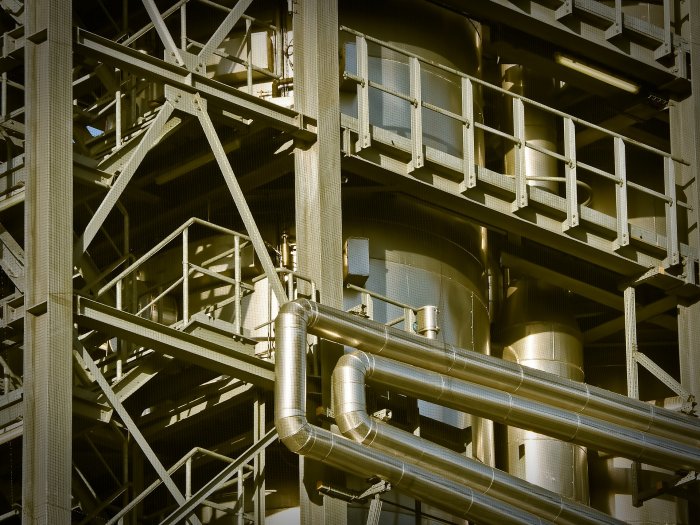German Businesses Optimistic, Albeit With Some Concerns

Mihály Varga
Photo by DUIHK / Pelsöczy.
Members of the German-Hungarian Chamber for Industry and Commerce (DUIHK) are, by and large, over the economic shock caused by COVID-19, and their willingness to hire and invest is as high as three years ago. However, this favorable business climate is overshadowed by concerns about the labor shortage, increasing costs, and the disruption of supply chains.
The mood among German-owned businesses in Hungary is distinctly upbeat, despite the worrying news of an intensifying fourth wave of the pandemic. The annual sentiment survey of the DUIKH, which polled 100 member firms locally and 3,200 globally, clearly shows that the majority of companies, mainly in industry, have returned to pre-COVID levels of production. As a result, optimism has again hit the record heights of three years ago.
As many as 43% of respondents say they plan to hire, and 44% of them are ready to increase investment spending. Industrial plants, and more specifically businesses with export interests, lead the pack in this regard. The proportion of those who find their own business situation positive is even bigger, with 57% claiming so. What is more, every second company expects it to improve within the next 12 months.
Germany remains Hungary’s most important trade partner and foreign investor, with more than 3,000 German-owned undertakings present on the Hungarian market.
“The volume of Hungarian-German foreign trade is back where it was in 2019, and so are Hungarian exports as a whole. In fact, Hungarian imports have already surpassed levels measured prior to the pandemic,” said András Sávos, president of the chamber, at the presentation of the 2021 survey. This favorable business climate trumps the global average by a considerable margin.
Some usual suspects might spoil the fun, though. Labor shortages stopped being an issue only temporarily, and now it’s back with a vengeance. Nearly 40% of respondents complained about an intensifying labor shortage in the past year, and just 13% experienced the opposite phenomenon.
“This might become a factor that can deteriorate growth perspectives. Therefore, DUIHK will continue to play an active role in further modernizing training in Hungary, most of all in vocational training, but also in strengthening dual higher education,” Sávos added.

András Sávos
Potential Bottleneck
The lack of skilled labor is one of the drivers behind soaring labor costs, another potential growth bottleneck. On average, an annual wage increase of almost 8% is expected, up from 6% in the spring.
It is worth noting that businesses have been compensated by the government, though, thanks to tax cuts under a five-year wage deal struck back in 2016. According to Sávos, attention should be paid to the impact of wage costs on competitiveness when working out the next such long-term agreement.
The disruption of global supply chains is also causing problems in Hungary, affecting production plants in particular. However, German companies are not considering relocating operations either in Hungary or globally. Nevertheless, new or additional suppliers are very much in need. Nearly half of the respondents say they intend to search for such partners; that figure was as high as 70% in the global survey.
In this regard, the position of the entire CEE is gaining new significance. More than one-third of businesses are looking for new suppliers in the region to secure fresh raw materials and energy sources.
Minister of Finance Mihály Varga, who also spoke at the presentation of the results, reminded his audience that the mistakes made in crisis management in the 2008 recession must not be repeated.
“Back then, fiscal rigor was restored way too fast, which held the pace of recovery back and resulted in further setbacks. What the government is doing right now is not pre-election spending but rather injecting incentives into the economy as required to restart it properly,” he said.
Speed of Recovery
The Hungarian investment rate amounts to 27.5% of GDP and is the highest in the EU. That should help the speed of recovery, he added.
The overall outlook is promising, not just in Hungary but across the whole region. Growth should be 6.8% this year, according to the latest government estimates, falling back to 5% in 2022 as the economy stabilizes. Moreover, it is anticipated that most commodity shortages should be gone next year.
“Can you actually call something a crisis where wages go up by 8-10% a year, and employment gets back to its previous level within a year?” the minister asked.
As far as risks are concerned, the government agrees with the business world that they need addressing.
“To keep energy prices under control, we’ve got long-term supply contracts in place to ensure energy provision. The labor shortage must be tackled in multiple ways: exploiting reserves in the system, adopting new technologies, and intensifying vocational training are all part of it. The government wishes to be a partner in solving this problem,” Varga said. He added that German businesses had validated the crisis management of the administration.
One other significant risk is inflation. As Dan Bucsa, chief CEE economist at UniCredit Bank, said at the presentation, second-round effects from supply shocks and a more protracted impact from supply chain bottlenecks and food prices are likely to keep inflation at record heights.
Accordingly, a 7-8% inflation rate is projected by UniCredit for 2022 should energy prices and supply chains not normalize. This is bound to force the hand of the National Bank of Hungary to increase the base interest rate further; that, in UniCredit’s estimate, could hit the 3% mark next year.
This article was first published in the Budapest Business Journal print issue of November 19, 2021.
SUPPORT THE BUDAPEST BUSINESS JOURNAL
Producing journalism that is worthy of the name is a costly business. For 27 years, the publishers, editors and reporters of the Budapest Business Journal have striven to bring you business news that works, information that you can trust, that is factual, accurate and presented without fear or favor.
Newspaper organizations across the globe have struggled to find a business model that allows them to continue to excel, without compromising their ability to perform. Most recently, some have experimented with the idea of involving their most important stakeholders, their readers.
We would like to offer that same opportunity to our readers. We would like to invite you to help us deliver the quality business journalism you require. Hit our Support the BBJ button and you can choose the how much and how often you send us your contributions.









